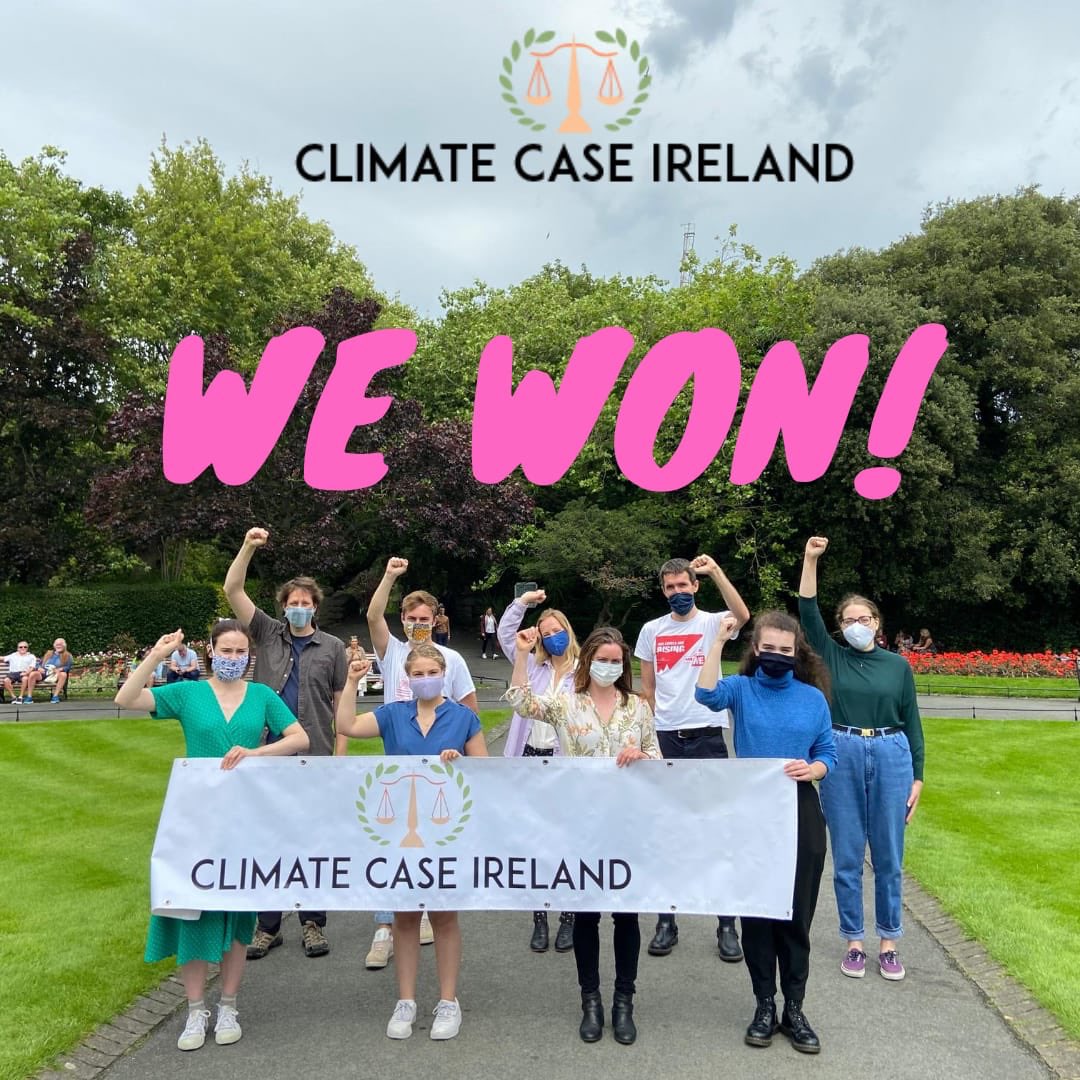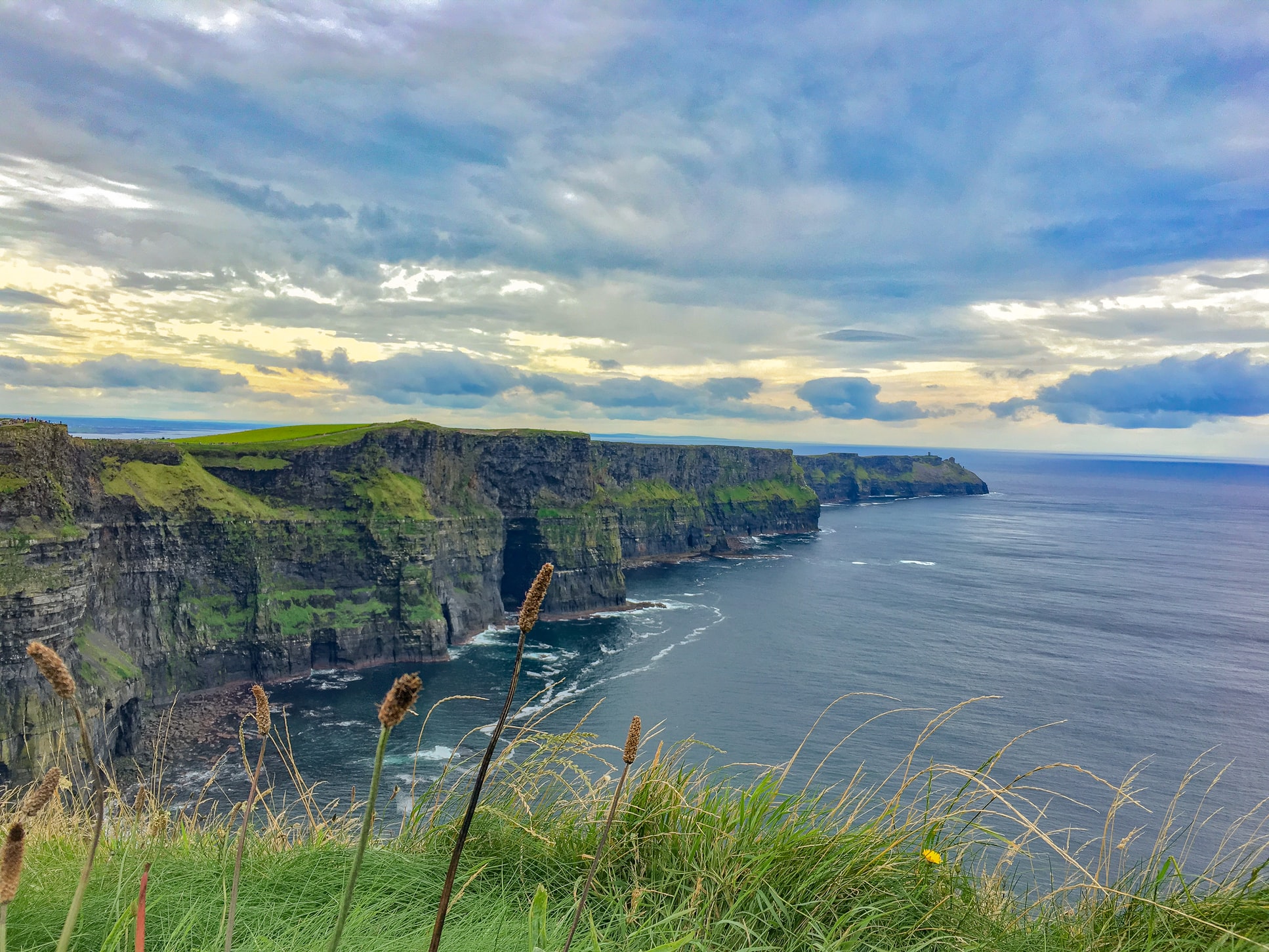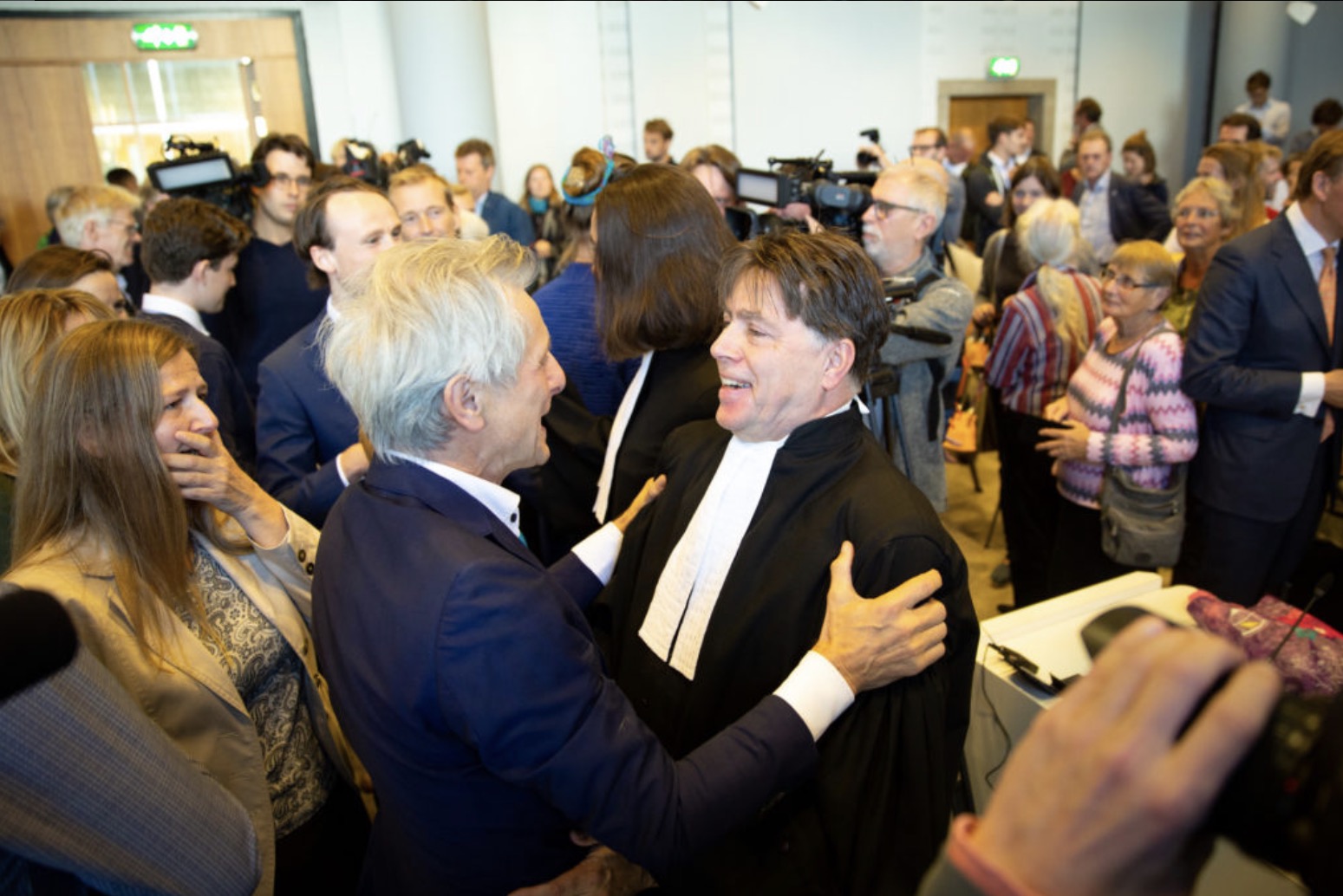
- Sustainable Planet -
- 5mins -
- 296 views
Friends of the Irish Environment win historic ‘Climate Case Ireland’ in Supreme Court
Amidst the climate and biodiversity crisis, hope emerges as Ireland’s Supreme Court finds in favour of a case taken against the Irish government for failing to take adequate action on climate change.
Supreme Court finds government climate plan falls “well short”
A group of citizens have just won a landmark case against the Irish government for failing to take adequate action on climate change. Climate Case Ireland was brought by Friends of the Irish Environment and is the first case in Ireland to hold the government to account for its contributions to dangerous levels of climate change. Chief Justice Clarke found that the government’s National Mitigation Plan falls “well short” of being specific enough to provide the transparency required to comply with the Climate Action and Low Carbon Development Act 2015.

Quick turnaround by the Supreme Court reflects the urgency of the climate crisis
Friends of the Irish Environment (FIE) won their historic legal challenge, known as ‘Climate Case Ireland,’ against the Irish Government. The landmark Supreme Court judgment, announced Friday 31 August, held that the Government’s National Mitigation Plan, a mainstay of its climate change policy, failed to specify the manner in which it is proposed to achieve the ‘national transition objective’, as required by the Climate Act 2015.
This means that the Government has failed to specify how it plans for Ireland to transition to “a low carbon climate resilient and environmental sustainable economy by the end of 2050”. The Government must now create a new, more ambitious National Mitigation Plan that complies with Ireland’s national and international climate obligations.
Climate Case Ireland is the first case of its kind in Ireland and only the second case in the world in which the highest national court of law has required a Government to revise its national climate policy in light of its legal obligations.
Ireland currently has one of the highest levels of greenhouse gas emissions per capita in Europe and, contrary to longstanding recommendations of the UN’s Intergovernmental Panel on Climate Change (IPCC), Ireland’s emissions have been rising rather than falling.
The Environmental Protection Agency projects that Ireland’s emissions will increase significantly over the period 1990 to 2020, when the Government has repeatedly endorsed the IPCC’s advice that emissions need to fall rapidly and deeply over this period to help avert dangerous climate breakdown.
The case was heard in the Supreme Court just last month (June 22nd and 23rd) by an exceptional seven Supreme Court Judges – the composition reserved exceptionally for cases of particular importance or complexity. The remarkably quick turnaround by the Supreme Court in issuing its judgment just one month later reflects the urgency of the climate crisis and the need for the Irish Government to respond in a timely manner.
An online petition for Climate Case Ireland has attracted over 20,000 signatures of support.
Source: ClimateCaseIreland.org

Chief Justice Clarke found that the government’s National Mitigation Plan falls “well short”
The Chief Justice found that the 2015 Act “requires a sufficient level of specificity in the measures identified in a compliant plan that are required to meet the National Transitional Objective by 2050″.
According to TheJournal, he said that the 2015 Act involves transparency in formal government policy for achieving the climate objectives laid out in the NTO by 2050.
“A compliant plan is not a five-year plan but rather a plan covering the full period remaining to 2050.” Chief Justice Clarke found.
“The Plan falls well short of the level of specificity required to provide that transparency and to comply with the provisions of the 2015 Act,”
Senior Counsel for Friends of the Irish Environment, Eoin McCullogh, told the Supreme Court that climate action globally is “the single most important issue we face”.
The case argued that Ireland is “completely off course” to achieving emission reduction targets for 2020 and 2030.
The 2015 Climate Act committed the government to transition to a “low carbon, climate resilient and environmentally sustainable economy by the end of the year 2050”. It required that the government produce a national mitigation plan every five years which specifies how the 2050 objectives will be achieved.
The plan was criticised by environmental organisations after its launch in 2017, who said that it was not ambitious enough and did not set meaningful targets to address climate change. The plan allowed for a rise in Ireland’s emissions over the lifetime of the plan between 2017 and 2022.
Director of Friends of the Earth Oisin Coghlan said that the plan did not go far enough to “reduce Ireland’s climate-changing pollution”.
Shortly after the plan’s release, the government’s advisory council on climate change said that Ireland was not on track to meet short-term emission targets, or to decarbonise the economy by 2050, unless major new policy initiatives were developed.
It said that the efforts to reduce emissions needed to be increased across all sectors in order to achieve the long-term goal of reducing carbon dioxide emissions by at least 80% by 2050.
Source: TheJournal.ie

The first case of its kind in Ireland and only the second case in the world
Marjan Minnesma, CEO of Urgenda, noted:
“The Irish Supreme Court has taken a historic step today that will give hope to people all over the world. When so many people feel like their governments are not listening to their concerns about the climate crisis, this ruling shows that courts can play a critical role in addressing this crisis. This decision is welcome inspiration and governments around the world should pay close attention.”
On 20 December 2019, the Dutch Supreme Court, the highest court in the Netherlands, upheld the previous decisions in the Urgenda Climate Case, finding that the Dutch government has obligations to urgently and significantly reduce emissions in line with its human rights obligations. A truly historic outcome!

